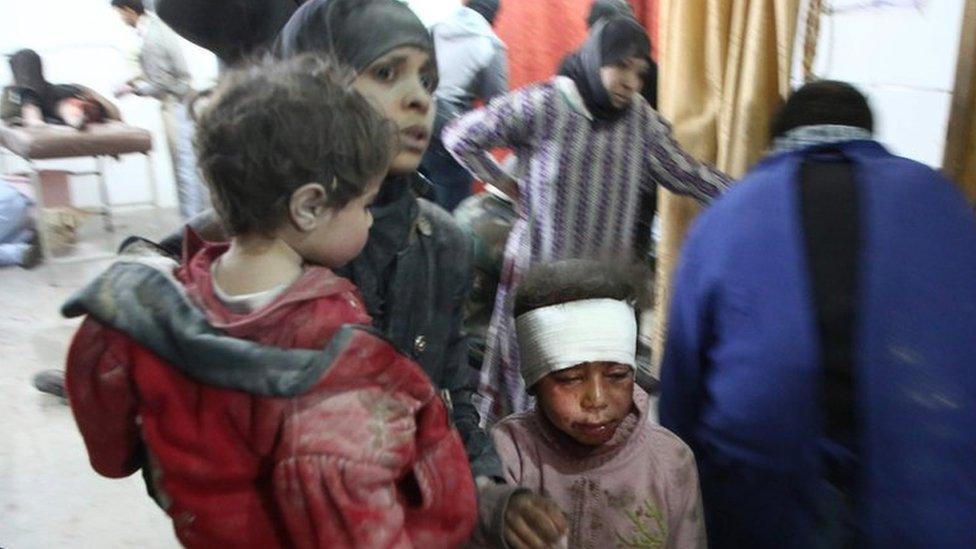Syria war: Air strike 'kills children in Eastern Ghouta school'
- Published
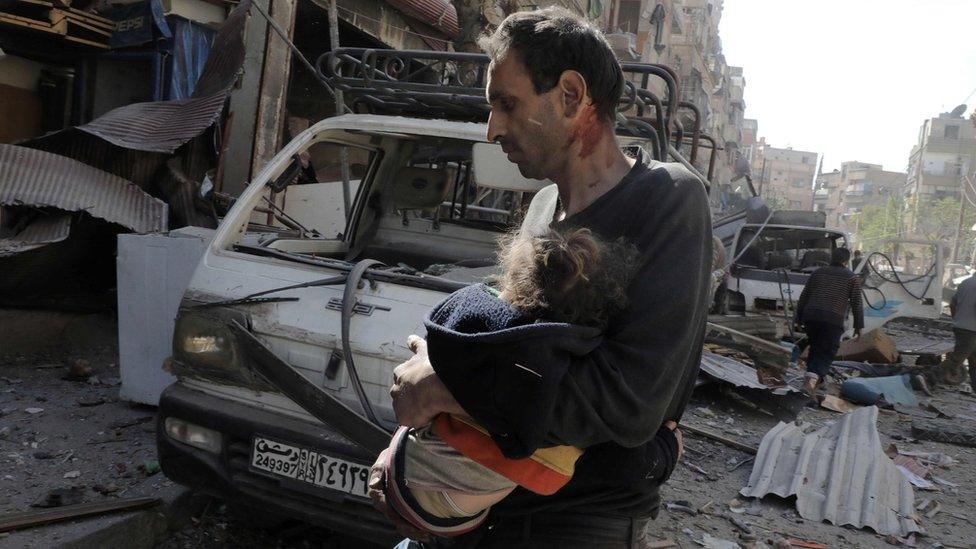
Some 300,000 civilians are still inside the rebel enclave, which has been cut into three pockets
An air strike has reportedly killed 15 children and two women sheltering in an underground school in Syria's besieged rebel-held Eastern Ghouta region.
Rescuers said civilians had been hiding in the school to escape government and Russian raids on the town of Arbin.
More than 1,400 civilians are believed to have been killed since government forces stepped up an offensive on the enclave outside Damascus a month ago.
At least 50,000 civilians have fled the siege in the past week.
The exodus came after soldiers and allied militiamen drove rebel forces out of about 65% of the region, cutting it into three pockets.
The UK-based Syrian Observatory for Human Rights (SOHR) monitoring group reported that three missiles had hit the underground school in Arbin, which is in the southern pocket controlled by the Faylaq al-Rahman rebel group.
In addition to killing 17 civilians, 50 others were wounded, SOHR said.
Allow X content?
This article contains content provided by X. We ask for your permission before anything is loaded, as they may be using cookies and other technologies. You may want to read X’s cookie policy, external and privacy policy, external before accepting. To view this content choose ‘accept and continue’.
The opposition National Coalition for Syrian Revolutionary and Opposition Forces posted a photo online purportedly showing the aftermath.
It showed rescue workers standing underneath a large hole in the ceiling, from which several destroyed pillars were dangling.

The coalition alleged that the school had been deliberately targeted by Russian aircraft, and that they were responsible for a "massacre".
There was no immediate comment from the Russian military, but it has previously denied carrying out air strikes on civilians and civilian infrastructure.
The pro-opposition Orient News website reported that at least 20 civilians were killed in a similar attack on another basement shelter in the nearby town of Zamalka on Monday. It blamed "new Russian missiles, which can penetrate several floors to reach underground locations".
Allow X content?
This article contains content provided by X. We ask for your permission before anything is loaded, as they may be using cookies and other technologies. You may want to read X’s cookie policy, external and privacy policy, external before accepting. To view this content choose ‘accept and continue’.

Orient News and opposition activists also said the town of Douma - which is in the northern pocket controlled by the Jaysh al-Islam rebel group - had been attacked with incendiary munitions filled with white phosphorous.
UN High Commissioner for Human Rights Zeid Raad Al Hussein said on Monday that the government's siege had "involved pervasive war crimes, external, the use of chemical weaponry, enforced starvation as a weapon of warfare, and the denial of essential and life-saving aid - culminating in the current relentless, month-long bombardment of hundreds of thousands of terrified, trapped civilians".
"Families are now streaming out of the area, but many civilians fear reprisals will be taken against them for their perceived support for opposition groups," he warned.
President Assad's frontline Syria visit
Seventy per cent of those who have so far fled on foot are women and children, according to Unicef. Many are in a very poor state of health, with children suffering malnutrition, scabies, diarrhoea and respiratory infections.
The UN refugee agency (UNHCR) said the makeshift collective shelters set up for the thousands of families fleeing was "extremely congested and overcrowded and lack basic sanitation", external, and warned of serious health risks.
"These people left with nothing and they need essentially everything from clothes to shelter," spokesman Andrej Mahecic told reporters in Geneva.
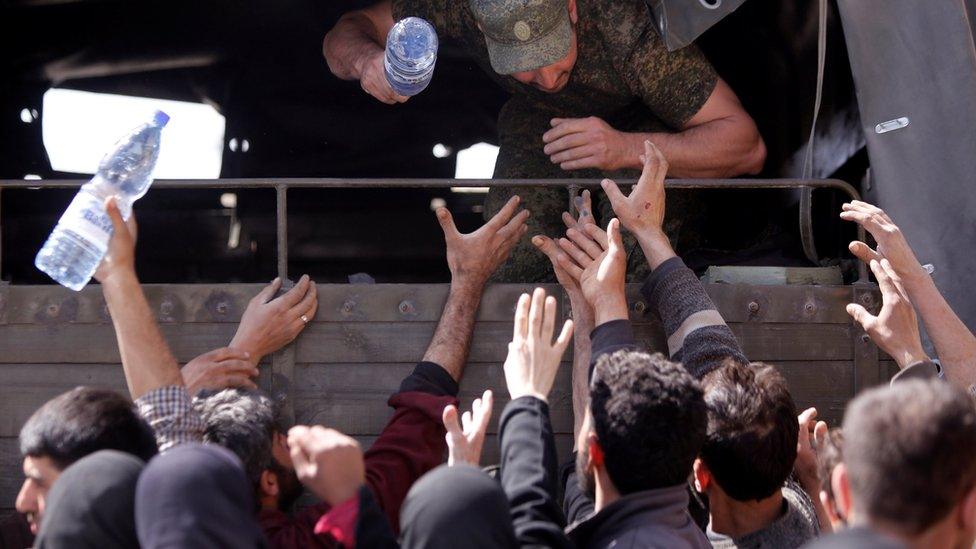
The 50,000 civilians who have fled the Eastern Ghouta are staying at makeshift camps
The agencies also expressed concern about the 104,000 people who have been uprooted from their homes by the battle between Turkish-backed rebel forces and a Kurdish militia for the north-western border region of Afrin.
A UN team that visited the nearby government-held town of Nubl on Monday found exhausted refugees who had trekked for hours through the mountains to escape. Local mosques and schools are now full of newly displaced people.
In a separate development, militants from the jihadist group Islamic State (IS) seized control of the Qadam district in southern Damascus late on Monday, after days of fighting that left 36 soldiers and militiamen dead, according to the SOHR.
IS has long held the neighbouring Hajr al-Aswad district and Yarmouk Palestinian refugee camp.
The conflict in Syria, which entered its eighth year last Thursday, has killed more than 350,000 people and displaced more than 11 million others.
- Published17 March 2018
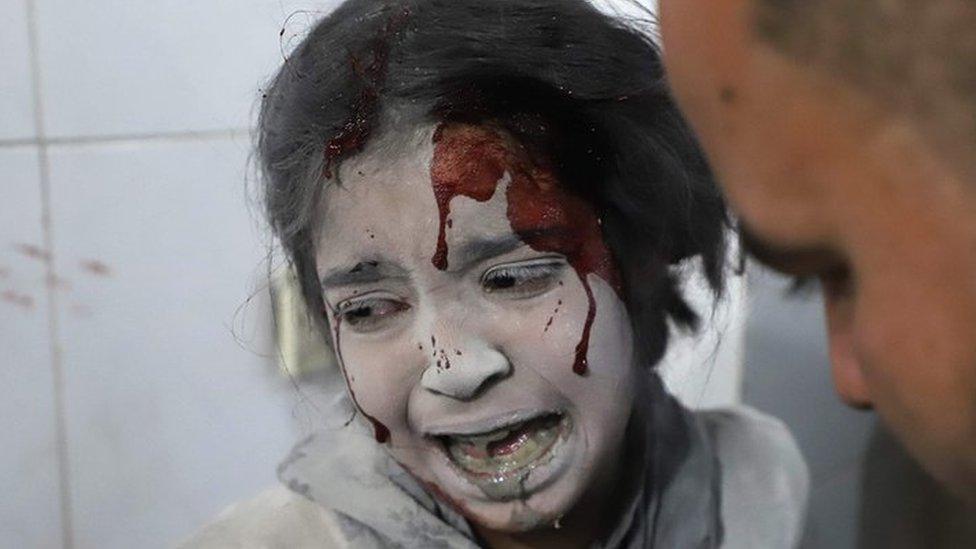
- Published4 March 2018
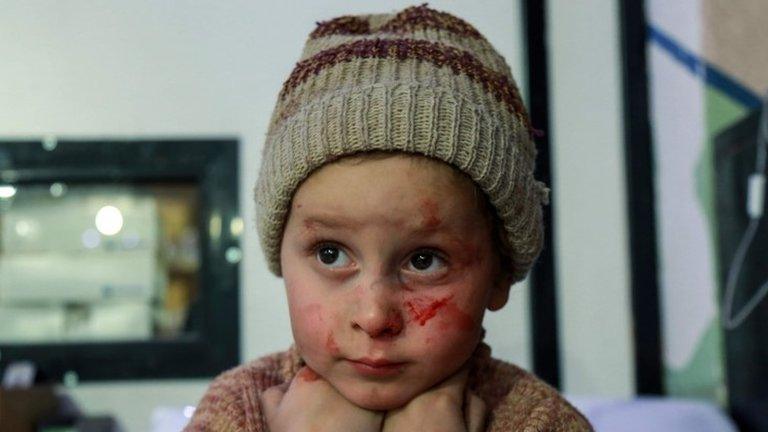
- Published29 March 2018
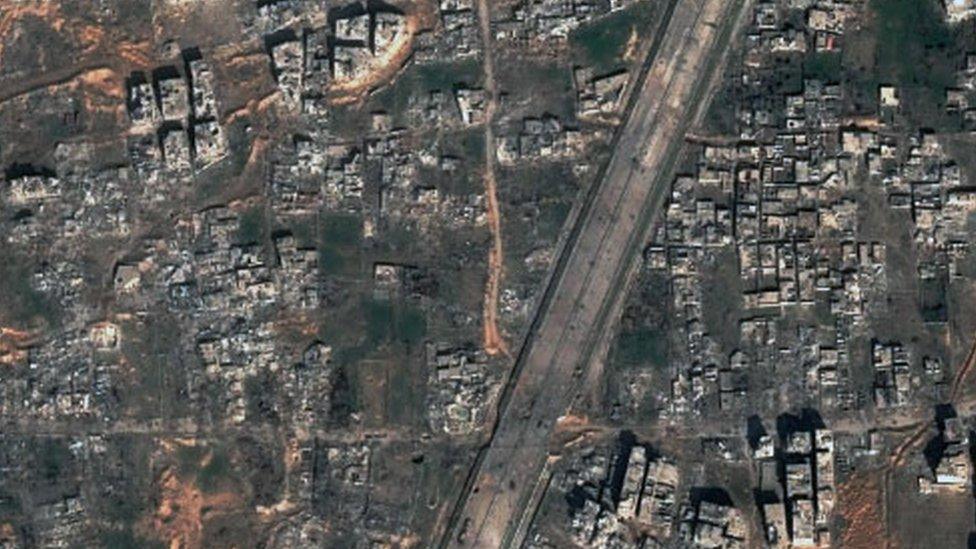
- Published2 May 2023

- Published23 February 2018
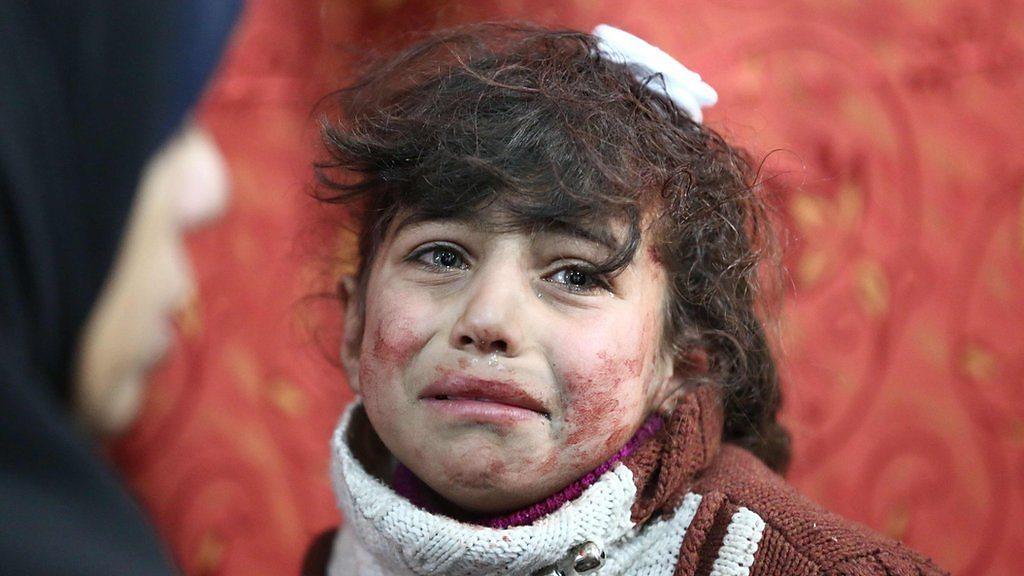
- Published22 February 2018
